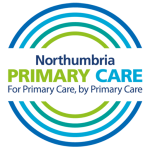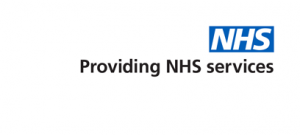Self care
You can manage most common conditions at home with support from pharmacists. On this page, you’ll find advice on self-care, over-the-counter treatments, and where you can find help.
The common cold is a mild illness that usually clears up on its own within a week or two. While there’s no cure, self-care can help relieve symptoms and speed up recovery.
The main symptoms include:
- a blocked or runny nose
- sneezing
- a sore throat
- a hoarse voice
- a cough
- feeling tired and unwell
You may also have:
- a high temperature
- aching muscles
- a loss of taste and smell
- a feeling of pressure in your ears and face
You can usually treat a cold at home without seeing a GP.
There are things you can do to help you get better more quickly:
- get plenty of rest
- drink lots of fluid, such as water, to avoid dehydration
- eat healthy food (it’s common for small children to lose their appetite for a few days)
- gargle salt water to soothe a sore throat(not suitable for children)
- drink a hot lemon and honey drink to soothe a sore throat
- breathe in steam to ease a blocked nose – try sitting in the bathroom with a hot shower running
Local pharmacists can give you professional, expert advice on the self-care of common conditions. They can recommend over-the-counter medicines that can help, if needed.
Pharmacies can support you with seven common illnesses without needing a GP appointment. These conditions are:
- Sinusitis (12 years+)
- Sore throat (5 years+)
- Ear infection in children (1 to 17 years old)
- Infected insect bite (1 years+)
- Impetigo (1 year+)
- Singles (18 years+)
- Urinary tract infection (UTI) for women (non-pregnant women 16-64)
To get help for the above conditions, visit your local pharmacy. You do not need an appointment.
Women in the North East and North Cumbria can also get the contraceptive pill straight from their local pharmacy, without needing a GP appointment. The service offers women more choice about where and how they access the contraception. The service is free and confidential for everyone, including those under 16. Personal information will not be shared unless there is a serious concern for safety or wellbeing.
All pharmacies offer walk-in appointments, with no need to book in advance, and consultations are carried out in private with a trained pharmacist. Pharmacists can help whether someone is starting the pill for the first time or continuing an existing prescription.
A yearly check-up will take place, usually when returning for the next supply.
If you have a non-life-threatening injury, you can visit a Minor Injury Unit or Urgent Treatment Centre. This includes:
- Minor cuts and wounds:Cuts that may need stitches, grazes, and minor wounds.
- Sprains and strains:Twisted ankles, pulled muscles, and similar injuries.
- Minor fractures:Possible broken bones in limbs like arms or legs below the knee.
- Minor burns and scalds:Small burns that aren’t serious
- Minor head injuries:Head bumps without loss of consciousness or serious symptoms
- Insect bites and stings:Bites or stings causing significant discomfort
- Foreign body removal:Removal of small objects from the eye, ear, or nose
Do not go to an MIU or UTC if you have:
- Severe bleeding or injuries with significant blood loss
- Loss of consciousness
- Difficulty breathing
- Severe chest pain
- Major trauma
- Suspected spinal injuries
Sexual health clinics are free and available to everyone, no matter your age, gender, ethnicity or sexuality.
The clinics may be called genitourinary medicine (GUM), or sexual and reproductive health clinics. They offer sexual health services which include:
- tests and treatment for sexually transmitted infections (STIs)
- contraception
- pregnancy testing
- abortion advice
- pre-exposure prophylaxis (PrEP) and post-exposure prophylaxis (PEP) medicine to protect against HIV
- hepatitis A and B vaccinations
- human papillomavirus (HPV) vaccinations
- help after rape or sexual assault
You do not need to have a diagnosed mental health condition to refer yourself to NHS talking therapies for anxiety and depression.
NHS talking therapies is a psychological treatment that may help if you:
- have lasting low mood
- often feel very anxious about lots of different things
- worry constantly about your health
- fear social situations
- have panic attacks
- have an overwhelming fear of something (phobias), like agoraphobia
- have obsessive compulsive disorder (OCD)
- have post-traumatic stress disorder (PTSD)
- have body dysmorphic disorder (BDD)
They may also help if you have anxiety or depression and a long term health condition. This includes chronic fatigue syndrome (CFS) or irritable bowel syndrome (IBS).
To refer yourself using this service, you’ll need to enter the name of your GP surgery. This is to help find NHS talking therapies in your GP surgery’s area.
When you refer yourself, the talking therapies service will contact you. They’ll tell you how long you may need to wait for your first therapy session.
They’ll also explain what information will be shared with your GP.
If you are experiencing muscles, bones, nerves or joint paint you can self-refer to a physiotherapy service.
You can find more information about how to self-refer to physiotherapy and how to manage your condition by clicking the relevant button below.
If you are not sure of where to access care, NHS 111 can help. It is a free 24/7 service that provides urgent medical advice. They can help you find the right healthcare service.
When to Use NHS 111
- If you have urgent medical concerns but it’s not life-threatening.
- If you’re unsure whether to see a GP, pharmacist, or go to A&E.
- If you need out-of-hours medical advice.
- If you need a repeat prescription urgently but your GP is closed.
- If you need help arranging emergency dental care.
- If you need mental health support.
You can visit 111.NHS.uk or call 111.

